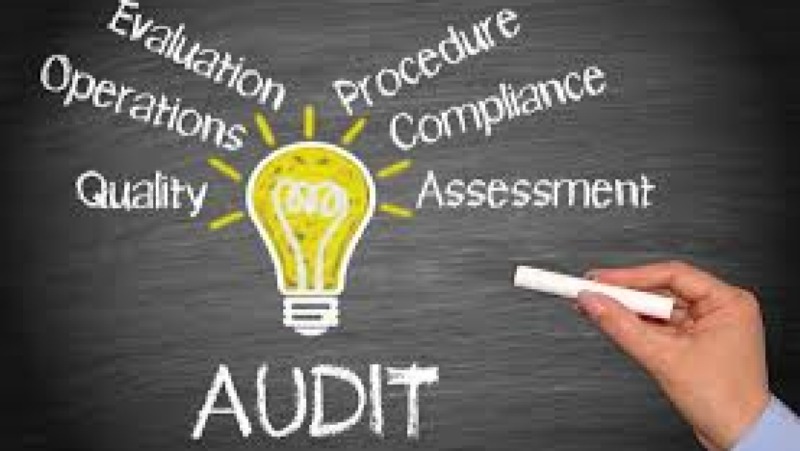Compliance Management Systems Auditing Training Course
Good Manufacturing Practices (GMP) in Pharmaceuticals Training Course represent the backbone of quality assurance in the pharmaceutical industry.
Skills Covered

Course Overview
Compliance Management Systems Auditing Training Course
Introduction
Compliance Management Systems Auditing Training Course has become one of the most critical professional skills in todayΓÇÖs corporate environment, driven by growing global regulations, digital transformation, and the increasing importance of accountability and transparency. Organizations are required to implement structured systems that ensure adherence to international standards, legal frameworks, and internal governance practices. This course provides professionals with practical tools, technical expertise, and globally recognized auditing skills to enhance compliance effectiveness, reduce risks, and strengthen ethical practices within their organizations.
This training focuses on equipping participants with the competencies to evaluate, design, and implement strong compliance auditing frameworks. By using real-world case studies, interactive modules, and hands-on exercises, learners will be able to assess risk exposure, identify gaps, and recommend practical compliance solutions. The course combines both theoretical knowledge and applied learning, ensuring participants are ready to meet the demands of complex compliance environments in industries such as finance, healthcare, technology, government, and international trade.
Course Objectives
- Understand global compliance management systems and auditing frameworks.
- Master auditing standards, methodologies, and best practices.
- Develop risk-based compliance auditing skills for complex industries.
- Identify regulatory compliance gaps using practical tools.
- Apply international compliance frameworks such as ISO 37301.
- Strengthen corporate governance and accountability practices.
- Integrate compliance management with enterprise risk management.
- Enhance reporting and documentation for compliance audits.
- Conduct effective internal and external compliance audits.
- Apply data-driven compliance auditing and digital tools.
- Strengthen ethical auditing practices and decision-making.
- Utilize case studies for practical compliance auditing insights.
- Improve organizational resilience through compliance culture building.
Organizational Benefits
- Strengthened compliance culture across the organization.
- Enhanced reputation and trust with stakeholders.
- Reduced legal, regulatory, and reputational risks.
- Improved corporate governance and accountability.
- Increased efficiency in compliance operations.
- Better integration of compliance with business strategy.
- Enhanced auditing and monitoring capabilities.
- Greater alignment with global compliance standards.
- Reduced financial penalties through proactive auditing.
- Long-term sustainability through risk-based compliance practices.
Target Audiences
- Compliance Managers and Officers
- Internal Auditors and Risk Managers
- Corporate Governance Professionals
- Financial Services Compliance Teams
- Legal and Regulatory Advisors
- Quality Assurance Professionals
- Government and Public Sector Auditors
- Consultants in Compliance and Risk Management
Course Duration: 5 days
Course Modules
Module 1: Introduction to Compliance Management Systems
- Key concepts of compliance management
- Global compliance frameworks and standards
- Importance of auditing in compliance systems
- Risk-based compliance management approaches
- Roles and responsibilities in compliance auditing
- Case study: Building a compliance framework in healthcare
Module 2: Compliance Risk Assessment
- Principles of compliance risk identification
- Tools for compliance risk analysis
- Evaluating compliance risk in business operations
- Prioritization of compliance risk exposure
- Reporting compliance risk findings
- Case study: Risk mapping in financial services
Module 3: International Standards for Compliance Management
- Overview of ISO 37301 compliance management systems
- ISO 19600 and its application in compliance auditing
- Global regulations influencing compliance standards
- Integration of compliance frameworks across industries
- Benchmarking compliance systems against best practices
- Case study: Implementing ISO 37301 in a multinational company
Module 4: Auditing Principles and Practices
- Fundamentals of auditing compliance systems
- Internal vs. external compliance audits
- Core auditing techniques and approaches
- Collecting and analyzing compliance evidence
- Reporting audit outcomes and recommendations
- Case study: Auditing compliance in a technology company
Module 5: Regulatory and Legal Compliance Auditing
- Understanding industry-specific regulations
- Auditing compliance to legal requirements
- Aligning audits with anti-bribery and anti-fraud measures
- Managing compliance with data protection laws
- Reporting legal compliance findings
- Case study: Compliance auditing in GDPR frameworks
Module 6: Ethics and Integrity in Compliance Auditing
- Role of ethics in compliance auditing
- Building integrity in audit processes
- Identifying and preventing auditor bias
- Strengthening ethical decision-making frameworks
- Corporate social responsibility in compliance auditing
- Case study: Ethical dilemmas in audit reporting
Module 7: Digital Compliance Auditing Tools
- Leveraging data analytics in compliance auditing
- Role of artificial intelligence in compliance monitoring
- Implementing digital compliance dashboards
- Using audit management software tools
- Future trends in compliance technology
- Case study: Digital audit transformation in banking
Module 8: Reporting, Follow-Up, and Continuous Improvement
- Structuring effective compliance audit reports
- Communicating findings to management and stakeholders
- Follow-up strategies for audit recommendations
- Continuous improvement in compliance systems
- Linking audit outcomes to business performance
- Case study: Post-audit compliance improvements in manufacturing
Training Methodology
- Instructor-led interactive sessions
- Group discussions and peer learning exercises
- Real-life case study analysis and simulations
- Practical compliance audit exercises and role-play
- Digital tools demonstrations and workshops
- Comprehensive assessments and feedback sessions
Register as a group from 3 participants for a Discount
Send us an email: info@datastatresearch.org or call +254724527104
Certification
Upon successful completion of this training, participants will be issued with a globally- recognized certificate.
Tailor-Made Course
We also offer tailor-made courses based on your needs.
Key Notes
a. The participant must be conversant with English.
b. Upon completion of training the participant will be issued with an Authorized Training Certificate
c. Course duration is flexible and the contents can be modified to fit any number of days.
d. The course fee includes facilitation training materials, 2 coffee breaks, buffet lunch and A Certificate upon successful completion of Training.
e. One-year post-training support Consultation and Coaching provided after the course.
f. Payment should be done at least a week before commence of the training, to DATASTAT CONSULTANCY LTD account, as indicated in the invoice so as to enable us prepare better for you.